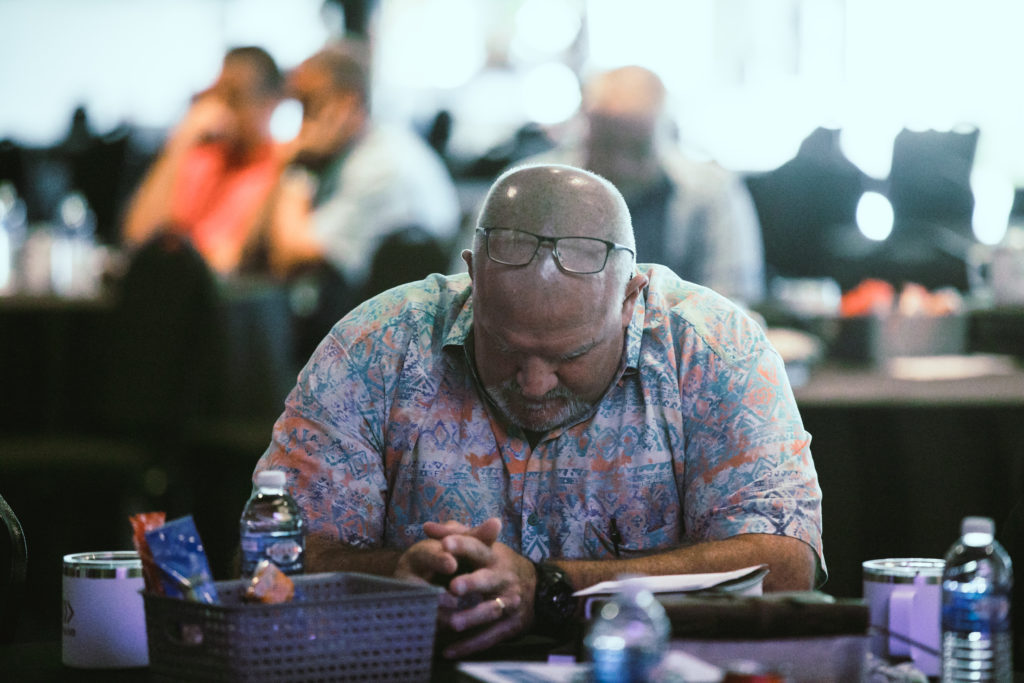In times of uncertainty, tragedy, and struggle, we can be overwhelmed by our powerlessness. So many huge factors in our day-to-day lives are things we have absolutely no control over.
When we are in this place, we are faced with a few options. We can fight for control, letting our fears control us and lead us toward a trap of anxiety. We can become apathetic, taking our hands off completely and letting go of all responsibility and numbing out to the pain of the struggle. There are lots of other impaired responses, too. We can rage out. We can withdraw. We can use television or substances to distract us from reality.
But there’s another way. The road there is narrow. It is sometimes harder to find. But it is the road to health and intimacy. And I believe this is the road of both honesty and responsibility. This is the journey of feeling feelings and being honest with the truth of our hearts while surrendering to God the things we cannot control and taking responsibility for the ones we can.
This sounds great in theory — but how do we get here? I think prayer is key.
PRAYER BEGINS WITH EMBRACING BROKENNESS
Prayer begins with a burden to embrace our brokenness. We take our limitations to God, embracing what we cannot do in order to trust Him with what only He can do. Prayer aligns our heart with His — changing us, shaping us, encouraging us, helping us to hear His voice and trust His wisdom. Prayer puts us in a posture of humility because we must face our own limited power while asking God to use His power to work in and through us.
In so many ways, prayer is the way we struggle with God. It’s how we wrestle with Him. In Genesis 30, Jacob wrestled with God and God blessed him for it. And out of that, God changed Jacob’s name to Israel (which literally means “struggle”). God then used Israel’s name as the name of His people. Think about it: God named His chosen people “Struggle.” And as God’s people today, we are not exempt from this. We will struggle, and we’re called to struggle well.
Prayer is one way we struggle well and deal with our powerlessness. It’s our platform for living a life of confession and repentance. It helps us to constantly change the way we see God, realigning our views of Him to what He has revealed to us in His Word. Prayer is a way we can release control, embrace our humanity and powerlessness and cry out to the One who has the ultimate power.
PRAYER IS OUR OUTCRY TO GOD
Prayer is our cry out.
Think about a new baby. They are born in total need, with complete dependence on someone else to provide for them. And what is the healthiest thing a baby can do? What do we look for right after delivery as a marker of a healthy baby? You look for their cry. A baby’s cry can be a signal of health. If a baby doesn’t cry or is unable to cry out, something might be wrong.
We are to come to God in the same way, recognizing our need and total dependence on Him and using prayer as our way to cry out to Him in our need.
So, as you move toward prayer in this season, begin by embracing your humanity. You are broken. Your power is limited. You are not in control. And then, recognize God’s sovereignty. Allow your heart to reflect on the truths of God’s power, God’s control, God’s love, God’s grace, God’s goodness and God’s promise to one day make all things new.
And then, leverage your opportunities.
We may be powerless, but we are not helpless. And God, through His Spirit, empowers us with grace to bring his kingdom where we are today.
Prayer fuels everything — our own walk with God and our mission. Click here to learn more about how you can pray for and support North American missionaries.
Published March 5, 2021
